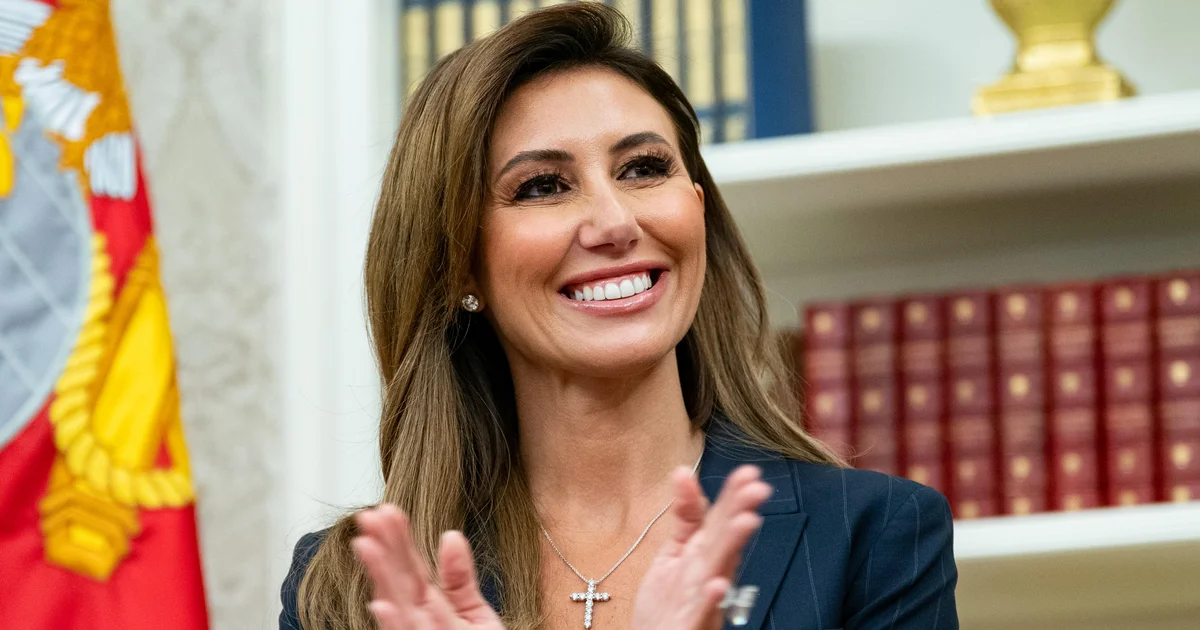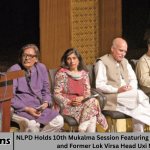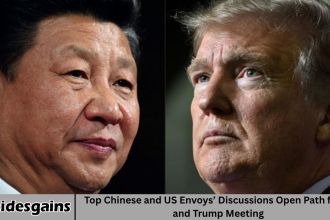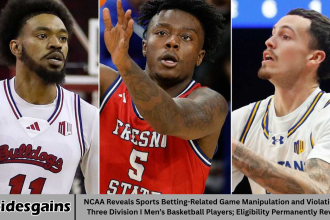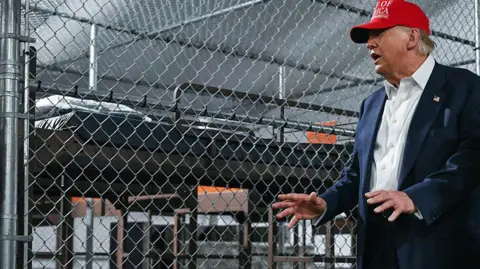In a dramatic turn of events that has sent ripples through both legal and political circles, former Trump attorney Alina Habba has been ruled unlawfully serving as New Jersey’s top federal prosecutor. The decision, delivered by a federal court, has ignited a nationwide debate about judicial ethics, political influence, and the constitutional checks on executive power.
Habba, widely known for her staunch defense of former President Donald Trump in several high-profile legal battles, was controversially appointed to the prestigious role of U.S. Attorney for the District of New Jersey earlier this year. Critics immediately raised red flags, arguing that her appointment blurred the line between legal impartiality and partisan loyalty. The ruling now confirms what many legal analysts had warned: her position violated both federal statutes and constitutional safeguards.
This article unpacks the case from every angle — the background of Alina Habba, the legal grounds for the ruling, reactions from experts, implications for Trump’s legal orbit, and what this controversy means for the future of America’s justice system.
Who is Alina Habba?
Alina Habba rose to national prominence as one of Donald Trump’s attorneys during his post-presidency legal entanglements. A graduate of Widener University Commonwealth Law School, she developed a reputation as a fiery litigator and unapologetic defender of conservative causes.
She became a familiar face in the media after joining Trump’s legal team during lawsuits over classified documents, the January 6th hearings, and multiple defamation cases. Known for her combative style, Habba often made headlines not just in courtrooms but also in television interviews where she defended Trump with unwavering loyalty.
Yet, despite her fame in conservative legal circles, Habba’s track record in federal practice was limited compared to career prosecutors who traditionally fill the U.S. Attorney role. This gap in experience became a focal point of criticism when she was nominated to lead one of the most powerful prosecutorial offices in the country.
The Appointment Controversy
The U.S. Attorney’s Office for the District of New Jersey is no ordinary post. It is responsible for handling some of the most sensitive federal cases, including organized crime, political corruption, and corporate fraud. Past officeholders include some of the most respected figures in law enforcement.
Habba’s appointment, reportedly pushed through with strong political backing, immediately raised eyebrows. Legal scholars and watchdog groups questioned whether her close ties to Trump and her lack of prosecutorial experience disqualified her from the role.
Civil liberties groups filed lawsuits challenging the appointment, alleging that it violated both the Appointments Clause of the Constitution and the Department of Justice’s own selection procedures. They argued that Habba’s appointment undermined public trust in the impartiality of federal prosecutions.
The Court’s Ruling
- Earlier this week, a federal judge ruled decisively against Habba’s tenure. The court found that:
- The appointment bypassed statutory requirements for U.S. Attorneys, which mandate Senate confirmation.
- Conflict of interest concerns were not adequately addressed, given Habba’s prior representation of Donald Trump.
- Procedural irregularities in the appointment process suggested political interference.
In a scathing opinion, the judge wrote:
“The Constitution does not permit partisan loyalty to outweigh the independence and integrity of the United States Attorney’s Office. Ms. Habba’s appointment was unlawful and cannot be sustained.”
The ruling effectively removes Habba from office and calls for a new, legally valid appointment process.
Political and Public Reaction
The decision sparked immediate reactions across the political spectrum.
- Democrats hailed the ruling as a victory for the rule of law, with several senators emphasizing the need to restore confidence in the Department of Justice.
- Republicans were divided. While some defended Habba as a victim of judicial overreach, others quietly distanced themselves from the controversy.
- Legal experts noted that the ruling could set a significant precedent in limiting partisan influence over federal prosecutorial appointments.
- Public sentiment was equally polarized. Supporters of Trump viewed the ruling as another attempt by the “deep state” to attack allies of the former president, while critics saw it as long-overdue accountability.
What This Means for Trump’s Legal Orbit
The removal of Habba from the U.S. Attorney’s Office has broader implications for Trump’s ongoing legal battles. As one of his most visible defenders, Habba’s rise to federal power was perceived by some as a protective shield for Trump and his allies against possible prosecutions in New Jersey.
Legal analysts suggest that without Habba in place, investigations into Trump-related business dealings in the state could proceed with greater independence. This includes inquiries into financial arrangements linked to Trump-owned properties and political fundraising activities.
One expert in constitutional law remarked:
“Habba’s removal ensures that no single political figure can hijack the machinery of federal prosecutions. This ruling protects the integrity of the justice system at a time when public trust is dangerously low.”
Broader Implications for the Justice System
The ruling raises important questions about how the justice system navigates appointments in an era of extreme political polarization.
Checks and Balances: The case highlights the critical role of the judiciary in preventing executive overreach.
Public Trust: Transparency in appointments is vital to maintaining confidence in prosecutorial independence.
Precedent: The decision may influence how future U.S. Attorneys are vetted and confirmed, particularly those with overt political ties.
It also signals to future administrations that bending rules for political gain in federal appointments carries significant legal risks.
Expert Opinions
Several experts weighed in following the ruling:
Professor Linda Chavez, Constitutional Law Scholar:
“This ruling restores the constitutional order. No president, past or present, has the authority to handpick prosecutors without Senate oversight.”
Mark Daniels, Former Federal Prosecutor:
“The U.S. Attorney’s Office is sacred ground. It cannot be a revolving door for political loyalists. This was the right call.”
Karen O’Neill, Political Analyst:
“The decision will undoubtedly fuel partisan narratives, but it’s a necessary corrective step. The justice system must remain above politics.”
Lessons from the Habba Case
- The Habba controversy underscores several key lessons for the American political and legal system:
- Impartiality matters: Prosecutors must be seen as neutral enforcers of the law, not political operatives.
- Procedures exist for a reason: Skipping Senate confirmation undermines constitutional design.
- Public accountability is essential: Transparency in appointments fosters trust.
- Political loyalty cannot replace merit: Experience and independence are prerequisites for such critical roles.
FAQs
Who is Alina Habba?
Alina Habba is a lawyer best known for representing former President Donald Trump in several high-profile cases.
Why was her appointment as U.S. Attorney controversial?
Her close ties to Trump, lack of prosecutorial experience, and the bypassing of Senate confirmation made her appointment highly contested.
What did the court rule?
The court ruled that Habba’s appointment violated constitutional and statutory requirements, rendering her service unlawful.
How does this impact Trump’s legal battles?
Without Habba in the role, investigations in New Jersey linked to Trump and his businesses may proceed with greater independence.
What does this mean for future federal appointments?
The ruling sets a precedent reinforcing the importance of Senate confirmation and impartiality in filling such critical roles.
How have political figures responded?
Democrats praised the ruling, while Republicans remain divided. Legal experts view it as a victory for the rule of law.
What’s next for the New Jersey U.S. Attorney’s Office?
The Justice Department must now nominate a qualified candidate and seek proper Senate confirmation to fill the position lawfully.
Conclusion
The ruling that former Trump attorney Alina Habba unlawfully served as New Jersey’s top federal prosecutor is more than just a legal decision — it is a defining moment in the ongoing struggle to safeguard America’s justice system from political interference.
It reinforces the principle that no individual, no matter how powerful or politically connected, is above the law or beyond constitutional limits. For Trump, it represents a blow to his post-presidency influence in federal legal matters. For the American people, it is a reminder of the enduring strength of checks and balances.
As the nation heads into another contentious election season, this ruling will likely serve as a benchmark in the debate over the politicization of justice. It may also inspire reforms to ensure that future appointments uphold the integrity, impartiality, and independence that the office of U.S. Attorney demands.

